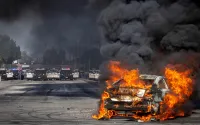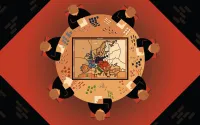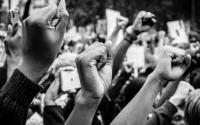Todays Zaman28 May 2009
With elections to the European Parliament looming, and some countries' electorates far more reluctant than others to go to the polls, minds are focused on the perennial discussion of what it means to be European.
Is it possible to feel allegiance to an abstract association of nations, and does "Europeanness" supersede or merely overlap loyalty to the (equally abstract) nation-state? In EU-aspirant Turkey, that debate is further complicated by religious identity and discussion of whether a sense of belonging to faith-defined community complements or interferes with loyalty to the secular state.
I find myself in Brussels to chair a discussion on a very different notion of identity, an allegiance not to space but to time, and a sense of belonging to a world that can never be revisited. Can one define oneself by the aspirations of one's generation, and can loyalty to the ideals of one's youth survive the challenges of decades? The forum for this debate is the İstanbul Center in Brussels, a cultural institute where the city of İstanbul engages with other European cities. On this occasion the center's guests are from Prague and the subject for the evening is "1968, and how we remained cool during the Cold War."
Ömer Madra, principal founder and mainstay of the determinedly independent Açık Radyo/Open Radio station, is holding the side for Turkey. He was in the forefront of the student movement in 1968, protesting the arrival of the US Sixth Fleet just as he was to oppose the invasion of Iraq in 2003. He was framed, imprisoned and tortured in 1971 after a military coup that was in some sense the equivalent of the Soviet invasion at the end of the Prague Spring. Unlike most of his radio listeners too young to recollect the 1980 Turkish coup, he remembers hearing the news of the Soviet invasion of Prague, an event that destroyed any lingering enthusiasm among the emerging Turkish left for Russian-style state socialism.
Jan Machacek was just a toddler in 1968 and remembers being scolded by his mother for pedaling his tricycle through the serried ranks of the invading Russian tanks. He describes an adolescence spent "pretending" that oppression wasn't there -- playing his guitar at mock weddings which were really rock concerts disguised to fool the ban on assembly. He was a member of the famed Plastic People of the Universe -- a band that figured in the Tom Stoppard play "Rock 'n' Roll," which equated underground culture with the political underground and an aspiration for freedom which no government can suppress.
The final guest was Karel Kovanda, whose extraordinary career has led him from opposition politics in Prague to Beijing to MIT (the one in Boston, not Turkish intelligence), to the Czech Foreign Ministry and now to his current post as deputy director general of the European Commission. He has a more quizzical view of the ideals of 1968 -- not everyone, everywhere, was a democrat, he reminds us -- but he still speaks movingly of aspiring "to a life where you didn't have to lie." It was the sudden removal of censorship that made 1968 stand out in memory, a freedom which the Kremlin had all too good reason to fear.
The ideals of 1968 have come under assault -- from those who believe it was a commitment to self-indulgence for which subsequent generations have paid a price, to those who feel it licensed a sense of arrogance no less objectionable than that of the preceding generation the '68ers so much resented. But Madra is still out there on the wire, leading the campaign against global warming in Turkey with his gravely prophet's voice, and Machacek is still playing his guitar in his band Garage when he is not blogging or writing for the Czech press. Kovanda has moved center stage, becoming the establishment he once opposed. And while no doubt during his career he has been forced to tell a diplomatic untruth, he is part of a political movement that is trying to create a freer, more stable and more purposeful Europe than that of the century past -- one does not maintain the allegiance of one's citizens with tanks. Perhaps the 1968 sense of identity is not so different from the identity Europe has tried to forge.






